Cumbria prison inmates help save rare aspen from deer
- Published
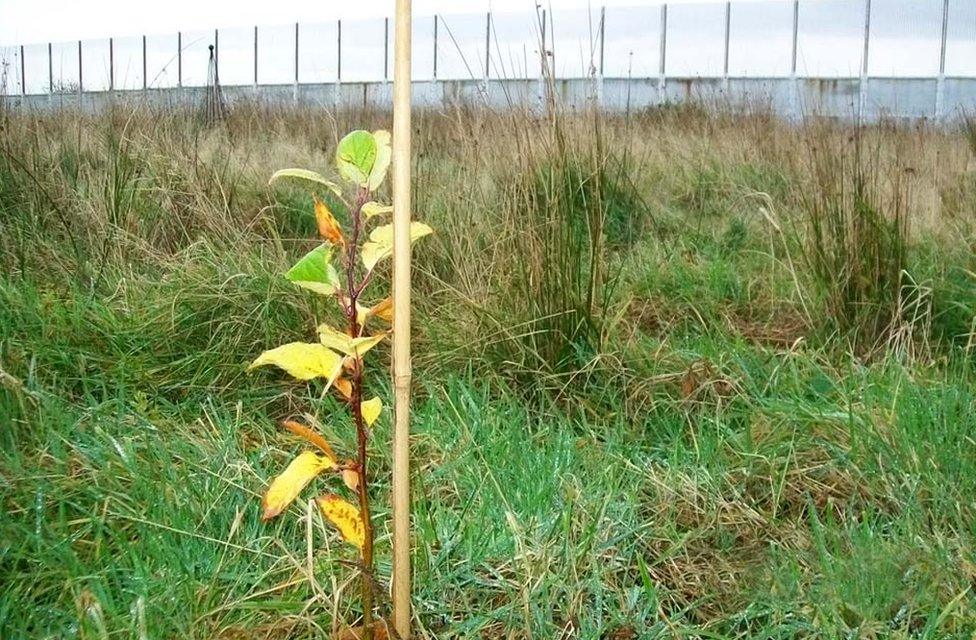
HMP Haverigg is an open prison but the fencing still keeps the deer out
A threatened species of tree is being grown in a prison where the fences prevent deer eating the saplings.
More than 4,600 rare aspen are being planted as part of Cumbria's Back on our Map project.
Project officer Ellie Kent said the involvement of HMP Haverigg near Millom had been "invaluable" as the pandemic had curtailed efforts in the community.
Deer "like to nibble" the saplings and have "contributed to the serious decline", she said.
Changes in land use and increased grazing have also left only a few isolated areas of growth, Ms Kent added.
Aspen rarely seed so new trees are often cultivated from shoots coming up from the root away from the main tree.
These shoots are often eaten by deer but are now protected in the fenced-in prison grounds.
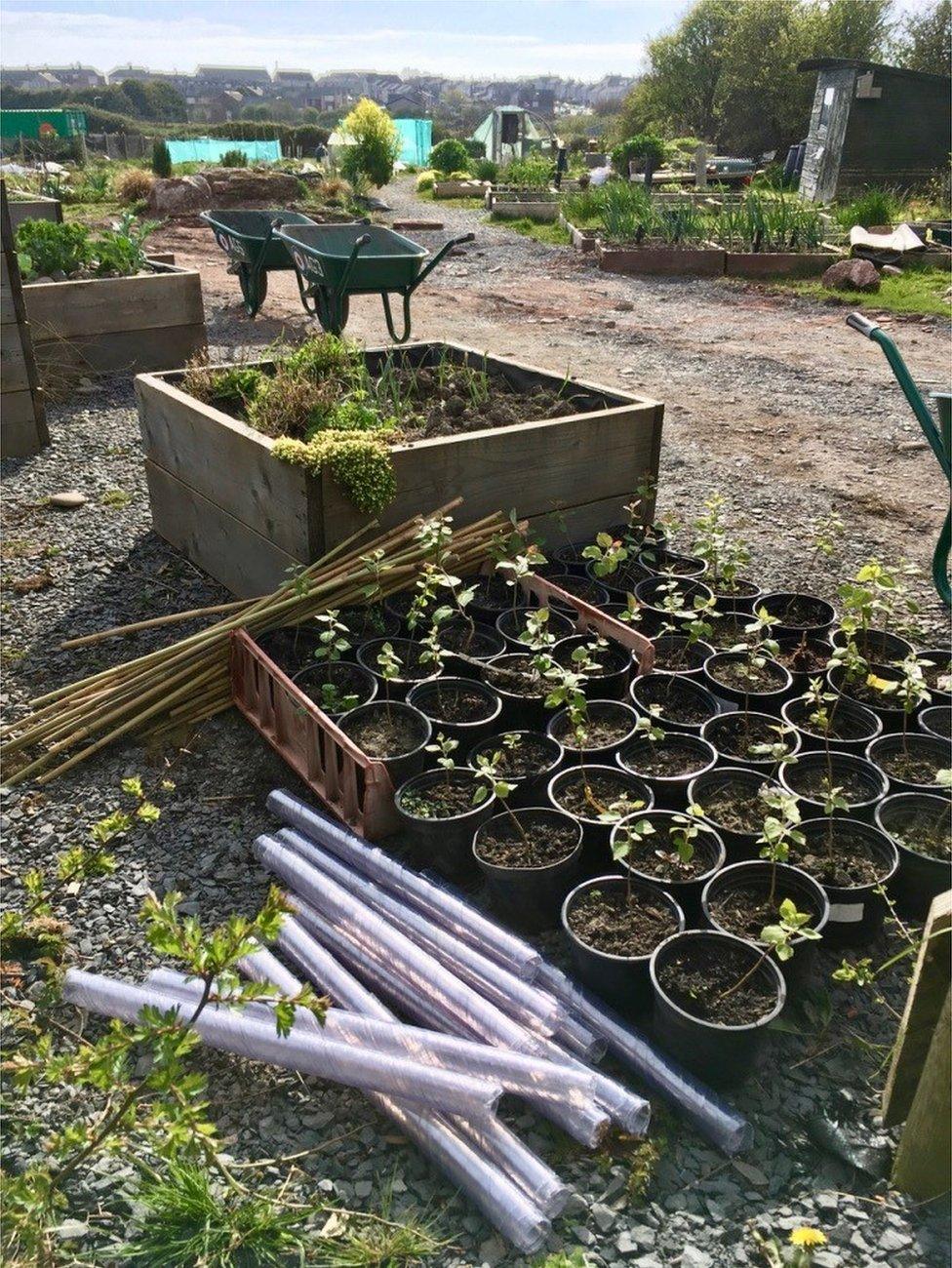
Aspen seedlings are cultivated in a nursery and then transplanted
Project lead Jo Sayers said the inmates had "lots of time on their hands" because the pandemic had prevented much of the open prison's normal day-release work.
The tree growing was part of a nature area where they can meet their families so "everyone wins", she said.
Prison community outreach manager John McInally said inmates had been "able to make an invaluable contribution to native tree cultivation and improving wildlife across the area".
Ms Kent said aspen were "crucial" because no other British tree supported more biodiversity.
"Their extensive root systems mean they bind soil together, slowing water and reducing flooding," she said.
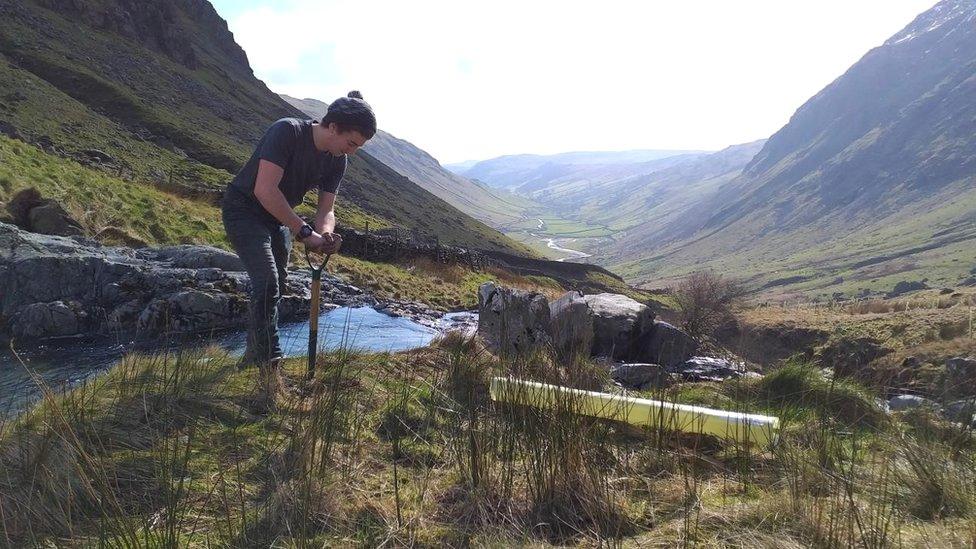
The trees are also planted around Cumbria in areas such as Longsleddale

Follow BBC North East & Cumbria on Twitter, external, Facebook, external and Instagram, external. Send your story ideas to northeastandcumbria@bbc.co.uk, external.
- Published18 January 2020
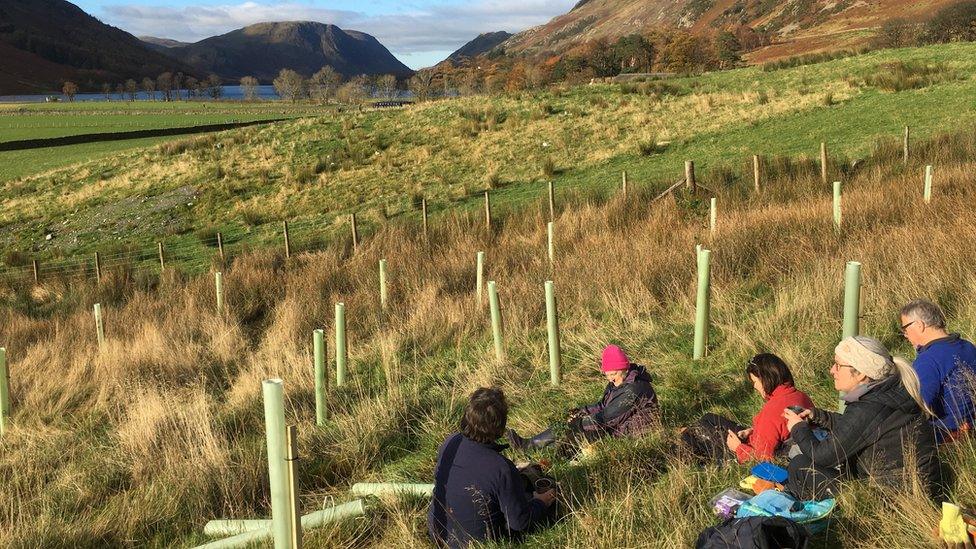
- Published2 October 2020
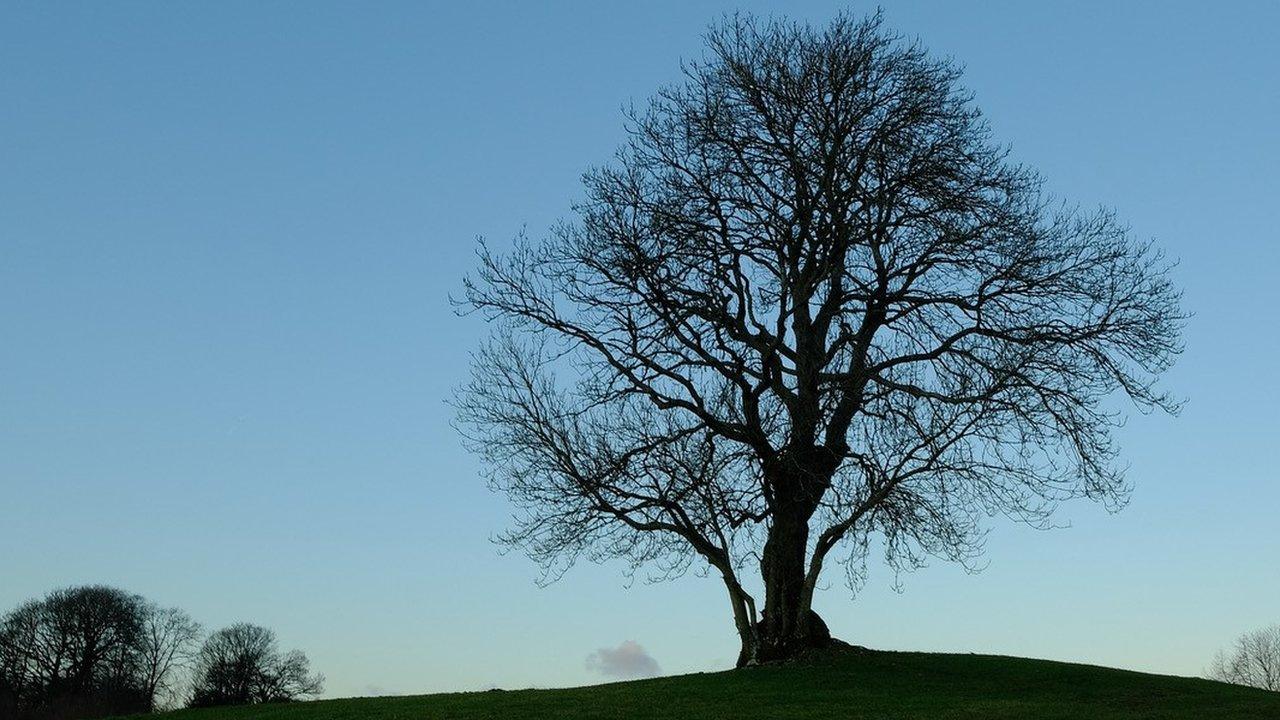
- Published3 June 2016